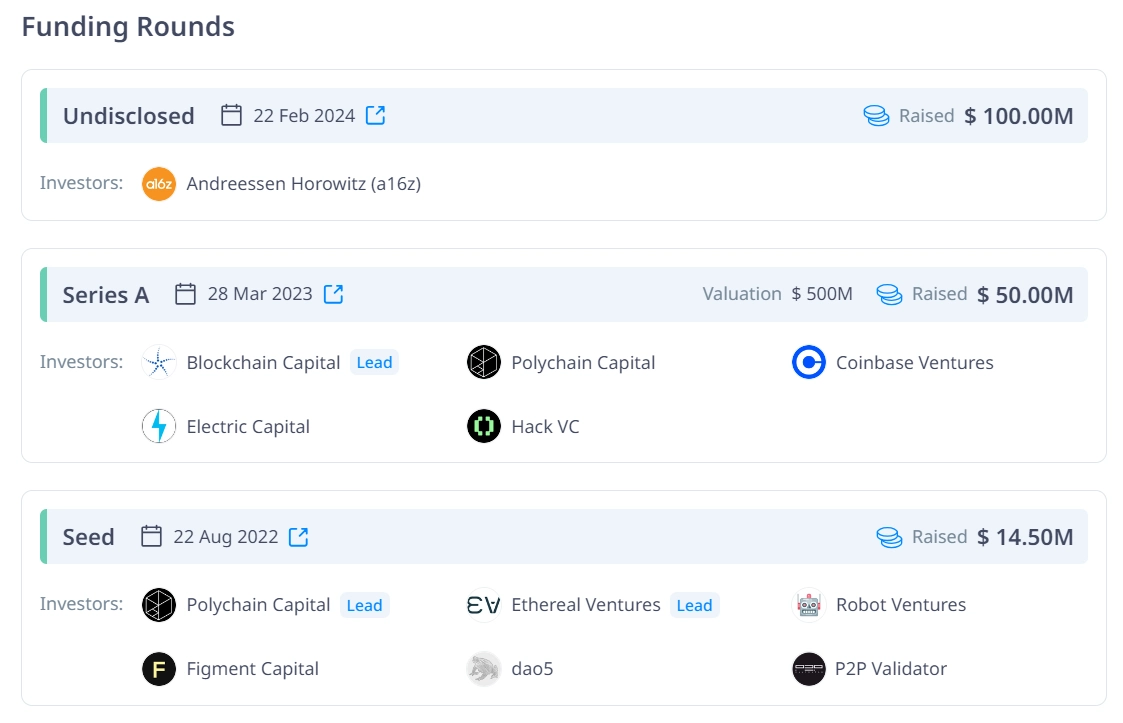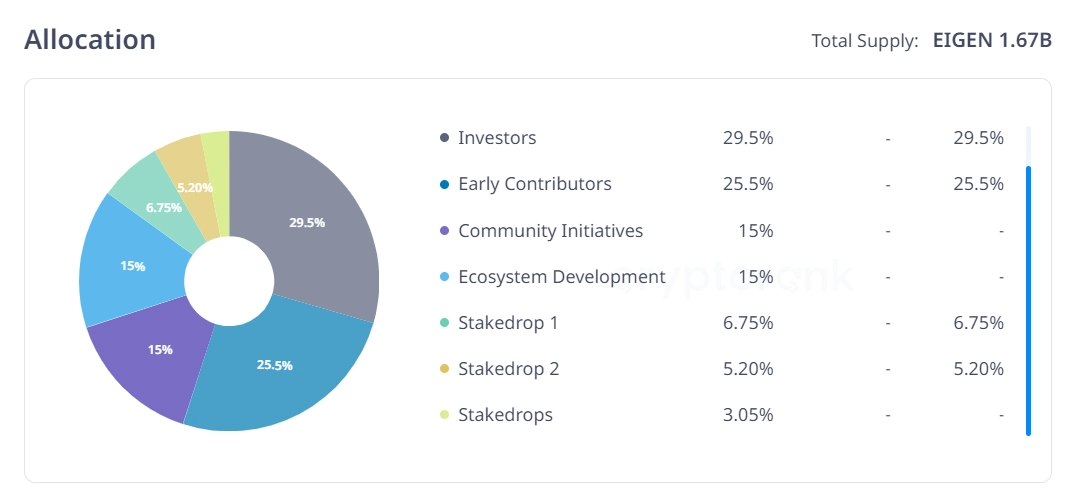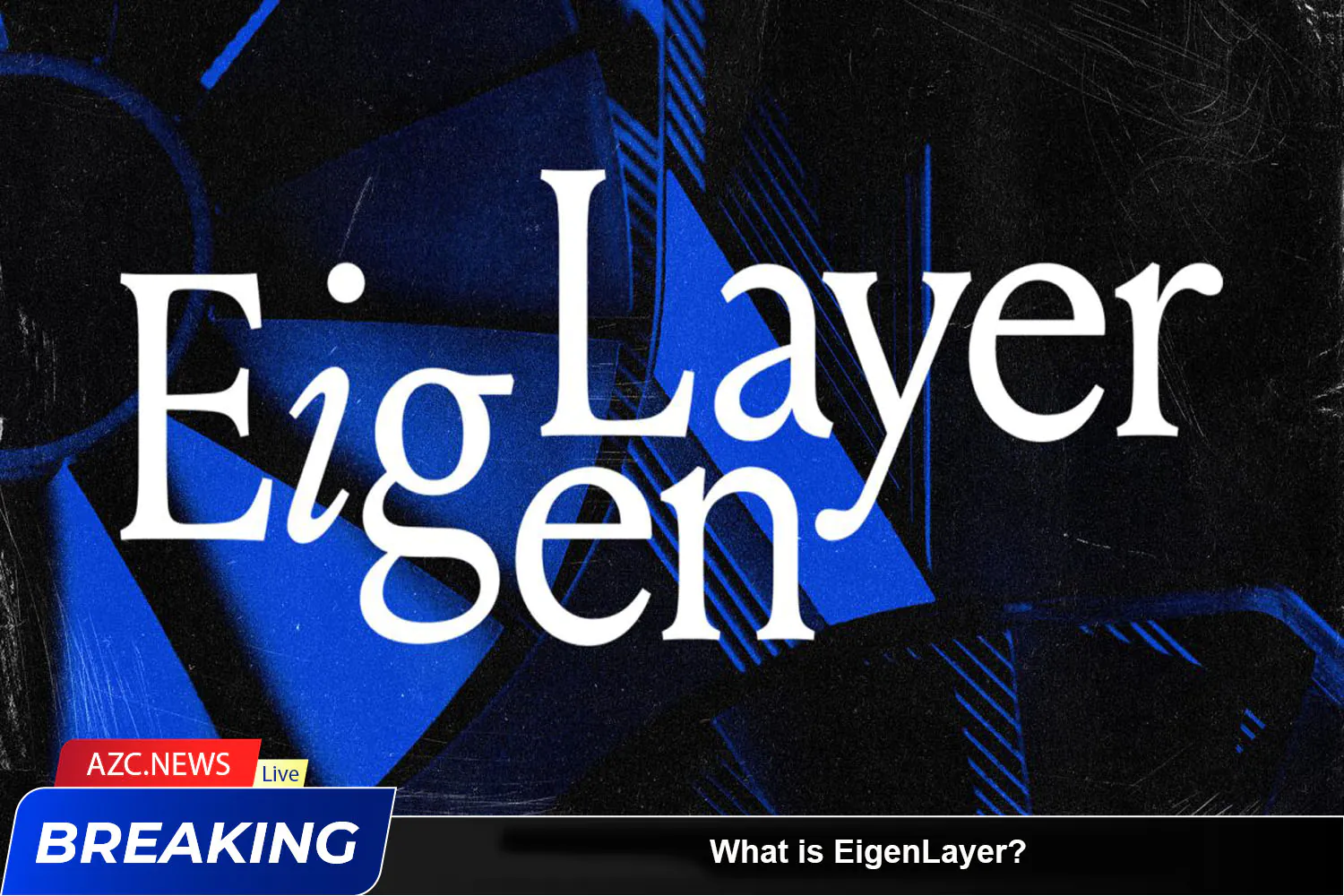Overview of EigenLayer
What is EigenLayer?
EigenLayer is a pioneering protocol that introduces the concept of Restaking, built on the Ethereum platform. It allows users to reuse staked ETH on the consensus layer.

Specifically, EigenLayer enables users who have staked ETH through Liquid Staking Derivatives (LSD) projects like Lido to continue using liquid tokens (such as stETH, rETH, etc.) to restake on EigenLayer’s smart contract and earn additional rewards.
Related: What is Restaking? Projects Benefiting After Ethereum ETF
What problem does EigenLayer solve?
Although Ethereum is the first modular blockchain, it still faces the issue of fragmented trust. Fragmented trust means that non-EVM applications and middleware need to create their own trust networks instead of leveraging Ethereum’s existing trust network.
This leads to economic inefficiencies and security risks, such as capital costs to build and maintain a separate trust network, reducing overall safety. These challenges make it difficult for decentralized application developers and impact the overall security of the Ethereum ecosystem.
EigenLayer addresses this problem by introducing the Restaking mechanism to resolve security fragmentation. The goal of EigenLayer is to allow any protocol, even non-EVM ones, to use Ethereum’s security, making the system stronger and more efficient.
For basic investors, EigenLayer helps reduce security costs and increases capital efficiency for those staking ETH.
Products of EigenLayer
Restake

EigenLayer allows users to reuse unlocked ETH and ETH in the form of LSD tokens like rETH, stETH, or fxETH to earn rewards and enhance the security of other networks, such as AVS or protocols incompatible with Ethereum. This system enables protocols to benefit from Ethereum’s security, increasing the cost of attacks and making protocols and assets safer.
Restaking ETH to secure networks helps solve the issue of opportunity costs and risks. These nodes will accept additional penalties if operations on other protocols are inefficient when restaking assets through EigenLayer. There are clear reward and punishment mechanisms: if nodes perform well, they receive additional profits from the services they choose to participate in.
EigenDA

EigenDA is a highly scalable data storage system designed for Ethereum rollups. It is already operational on the mainnet, with data throughput of up to 15MB/s. EigenDA stores rollup transactions until computational states are confirmed on the rollup bridge, with the following features:
- Scalability: EigenDA scales data writing linearly with the number of operators. Currently, with 15MB/s throughput, it is the most scalable data layer and will increase to 100MB/s and eventually GB/s in the future.
- Security: EigenDA operators must register and stake to participate, ensuring economic penalties for misbehavior. The system is protected by billions of dollars in assets.
- Cost Efficiency: Data storage costs only a few cents per MB, compared to several dollars. EigenLayer provides a tiered pricing model for users.
- Decentralization: EigenDA is operated by hundreds of operators running the EigenDA client. Inspired by Danksharding, the system reduces operational costs for operators while encouraging broad participation.
- Integration with Ethereum: EigenDA’s data records are registered with contracts on Ethereum, exposing operators to slashing risks. Ethereum Layer 2s using EigenDA avoid trust risks from relying on clients of other chains, which may be deceived by dishonest validators.
EigenLayer Ecosystem

EigenLayer’s ecosystem is growing rapidly, with participation from many pioneering blockchain projects:
- AltLayer: A Rollup-as-a-Service project that provides tools to expand and integrate execution layers, optimizing transaction processing.
- Blockless: Provides comprehensive infrastructure for decentralized applications (dApps), ensuring smooth operation without limitations.
- Celo: A Layer 1 EVM-compatible project transitioning to Ethereum’s Layer 2, aimed at bringing decentralized liquidity to the Ethereum community.
- Drosera: An automated zero-knowledge protocol, offering emergency infrastructure for Ethereum to enhance security and responsiveness.
- Espresso: A platform offering a “shared sequencer” solution for decentralized Rollups, using EigenLayer’s restaking to optimize node usage and capital efficiency.
- EigenDA: A large-scale, secure data storage service for Ethereum based on danksharding, helping Rollup solutions reduce costs and increase transaction throughput.
Team

EigenLayer boasts a team of over 60 experienced blockchain professionals. Key figures include:
- Sreeram Kannan (Founder – CEO): A Ph.D. in Telecommunications, currently an Associate Professor of blockchain research at the University of Washington.
- Chris Dury (COO): With an Economics background, he previously served as CEO of GetJar Inc. and General Manager at Amazon Web Services.
- Calvin Liu (CGO): A Cornell University graduate with experience at Compound Labs and Gusto before joining EigenLayer.
The EigenLayer team consists of top industry experts with prior experience at major corporations like Amazon, Facebook, Coinbase, and Consensys, working together to grow the EigenLayer ecosystem.
Investors

To date, EigenLayer has completed three funding rounds, raising a total of $164.5 million:
- Seed Round (August 1, 2022): Raised $14.5 million from Blockchain Capital, Ambush Capital, and Figment Capital.
- Series A (February 3, 2023): Raised $50 million led by Blockchain Capital, with investors like Polychain Capital, Coinbase Ventures, Finality Capital, Electric Capital, and Hack VC.
- Undisclosed Round (February 22, 2024): Raised an additional $100 million from a16z.
EigenLayer Airdrop
EigenLayer has conducted two airdrop rounds before officially listing its token on exchanges. Participants in the airdrop included those who restaked ETH on EigenLayer. A total of 200 million EIGEN tokens were distributed in these two airdrop events, giving the community a chance to hold the token before public trading.
Similar Projects
EigenLayer belongs to the Restaking category, similar to projects like Renzo and Ether.fi.
5 Key Facts about the EIGEN Token
EIGEN is the native token of EigenLayer.
Basic Information about EIGEN Token
- Token Name: EigenLayer
- Token Symbol: EIGEN
- Blockchain: Ethereum
- Smart Contract: 0xec53bF9167f50cDEB3Ae105f56099aaaB9061F83
- Listing Date: October 1, 2024
- Total Supply: 1,670,000,000 EIGEN
- Circulating Supply: ~200,000,000 EIGEN (TGE)
EIGEN Token Allocation

- Investors (29.5%): Locked for 1 year, then released at 4% per month for 2 years.
- Early Contributors (25.5%): Locked for 1 year, then released at 4% per month for 2 years.
- Community Initiatives (15%): Reserved for future activities and rewards.
- Ecosystem Development (15%): Supports ecosystem project development.
- Airdrop Staking (15%):
- 6.75% for participants staking before March 15, 2024.
- 5.2% (equivalent to 87 million EIGEN) for Stakedrop.
- Around 3% for the next Stakedrop.
At TGE on October 1, 2024, about 55% of tokens allocated to investors and the development team will be locked, while 45% allocated to the community and ecosystem will be unlocked. However, only 11.95% (about 200 million EIGEN) will be used for Airdrop.
Of these, 115 million EIGEN have been claimed, and 74 million EIGEN have been restaked, leaving only about 41 million EIGEN circulating on the market at TGE.
EIGEN Token Release Schedule
It is expected that all EIGEN Tokens will be fully unlocked by October 2027. Additionally, approximately 5% of the total supply of EIGEN will be minted annually as rewards for restaking participants, creating annual inflation pressure.
What is EIGEN Token used for?
- Governance: Used to vote on project governance proposals.
- Staking: Used for staking and earning rewards.
Where to buy EIGEN Token?
EIGEN Token can be bought/sold on major exchanges like Binance, OKX, and Bybit.
Potential Evaluation

Below are some objective opinions on the EigenLayer project:
EigenLayer is the largest and pioneering project in the restaking trend, allowing users to restake ETH to earn rewards. If all ETH currently staked on the Ethereum network is restaked, EigenLayer would benefit greatly from this. With Ethereum’s continued growth, EigenLayer has the potential to become a standout project in the future.
Regarding the team, the key members of EigenLayer come from major organizations and are transparent about their personal information, enhancing the trust and credibility of the project.
EigenLayer has also demonstrated impressive fundraising capability through progressive funding rounds, notably raising $100 million from a leading venture fund a16z. This clearly shows the potential of EigenLayer and the confidence of top investors in the market.
However, when it comes to tokenomics, I have some concerns:
- EIGEN’s inflation rate is relatively high, which could put pressure on token prices in the long run.
- The unlock schedule is relatively short, and a large portion of tokens is allocated to the team, which may lead to selling pressure after the tokens are unlocked.






